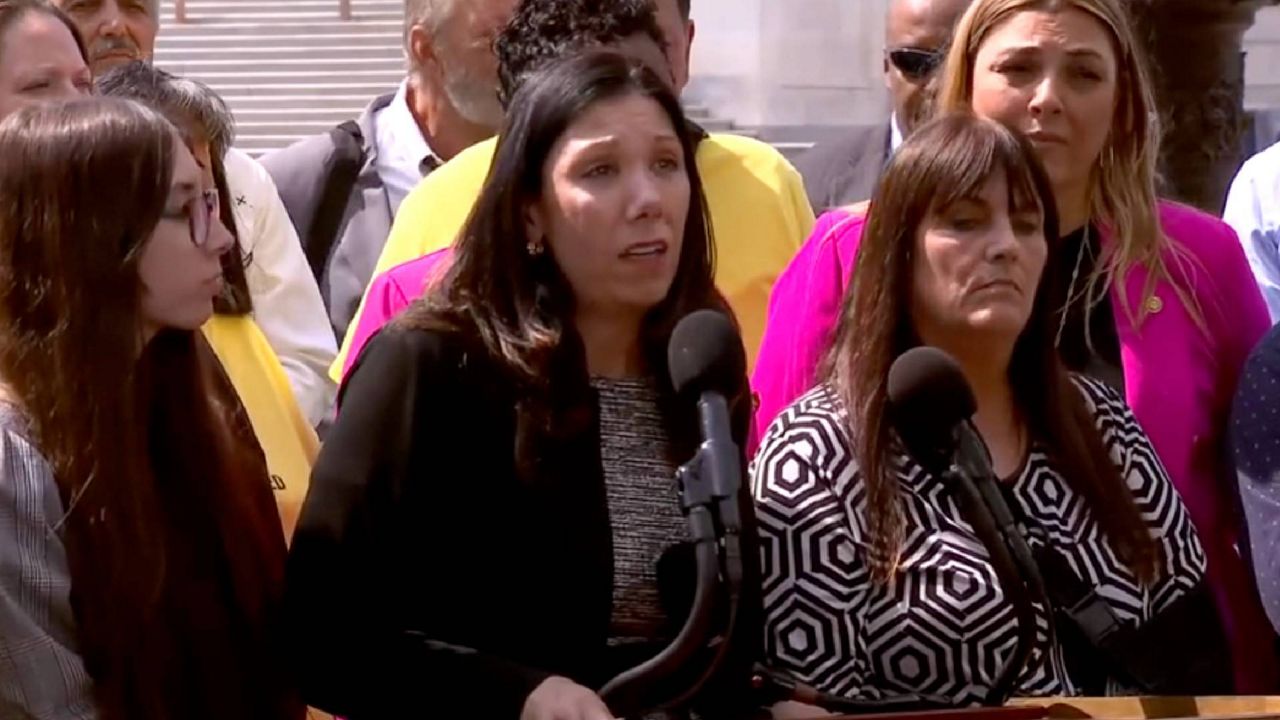Advocates from the St. Louis region joined others from around the country outside the U.S. Capitol Wednesday, pushing Congress to extend a federal program that would pay medical bills and survivor benefits for scores of people affected by U.S. nuclear weapons development dating back to the 1940s.
An amendment of the Radiation Exposure Compensation Act awaiting final passage of the National Defense Authorization Act (NDAA) would make people living in 20 St. Louis ZIP codes with certain illnesses eligible for the compensation.
Contamination issues have plagued the St. Louis region since the 1940s, impacting the city of St. Louis, North St. Louis County and St. Charles County, where uranium for nuclear weapons was processed, stored or dumped.
Dawn Chapman and Karen Nickel, founders of the advocacy group Just Moms STL, and State Rep. Tricia Byrnes, R-Wentzville, were among the St. Louis area residents at a bipartisan press conference Wednesday with Missouri Repubilcan Senators Josh Hawley and Eric Schmitt, and other lawmakers in Washington.
Other advocates came from New Mexico, and as far away as Guam, where it meant a 17 hour flight for Robert Celestial, founder of Pacific Association of Radiation Survivors. Celestial cleaned up atomic weapons in the Marshall Islands and said Guam was “devastated” by the post-World War II atomic weapons race.
“It’s a very important issue. People fly from New Mexico, Missouri. Why? Because we have a commonality. We’re suffering. Our families have died,” Celestial said.
“What’s happened in my community in St. Louis is the same thing that’s happened in theirs. And the same turning of the back and the same level of disrespect frankly that we felt from our federal government is the same. The same illnesses. The same heartbreak,” Chapman said.
Hawley sponsored the Language adding the St. Louis compensation to the NDAA which passed in the final Senate version of the bill in July. It now has to be reconciled with the House version of the bill that did not have the language.
That work will be done by a conference committee made up of members from the House and Senate Armed Services committees. That specific panel hasn’t been named yet, but could include Schmitt, and Sen. Tammy Duckworth, D-Ill., who supports the amendment.
Hawley told Spectrum News on Tuesday that he expects the work of crafting the version of the NDAA that will pass both chambers to last into November.
President Biden has signaled support for compensating victims.
Advocates like Chapman and Byrnes have been lobbying to expand the number of eligible ZIP codes or illnesses that get covered in the bill. Hawley was hopeful that would happen.
“We know that we want to include more folks we want to include more illnesses. We’re probably going to learn more about what the government did that will require more redress going forward so this is the first step,” he said. “We’re going to get some compensation as long as it takes. I mean if we can’t get it now we will come back and fight again and fight again and fight again."



